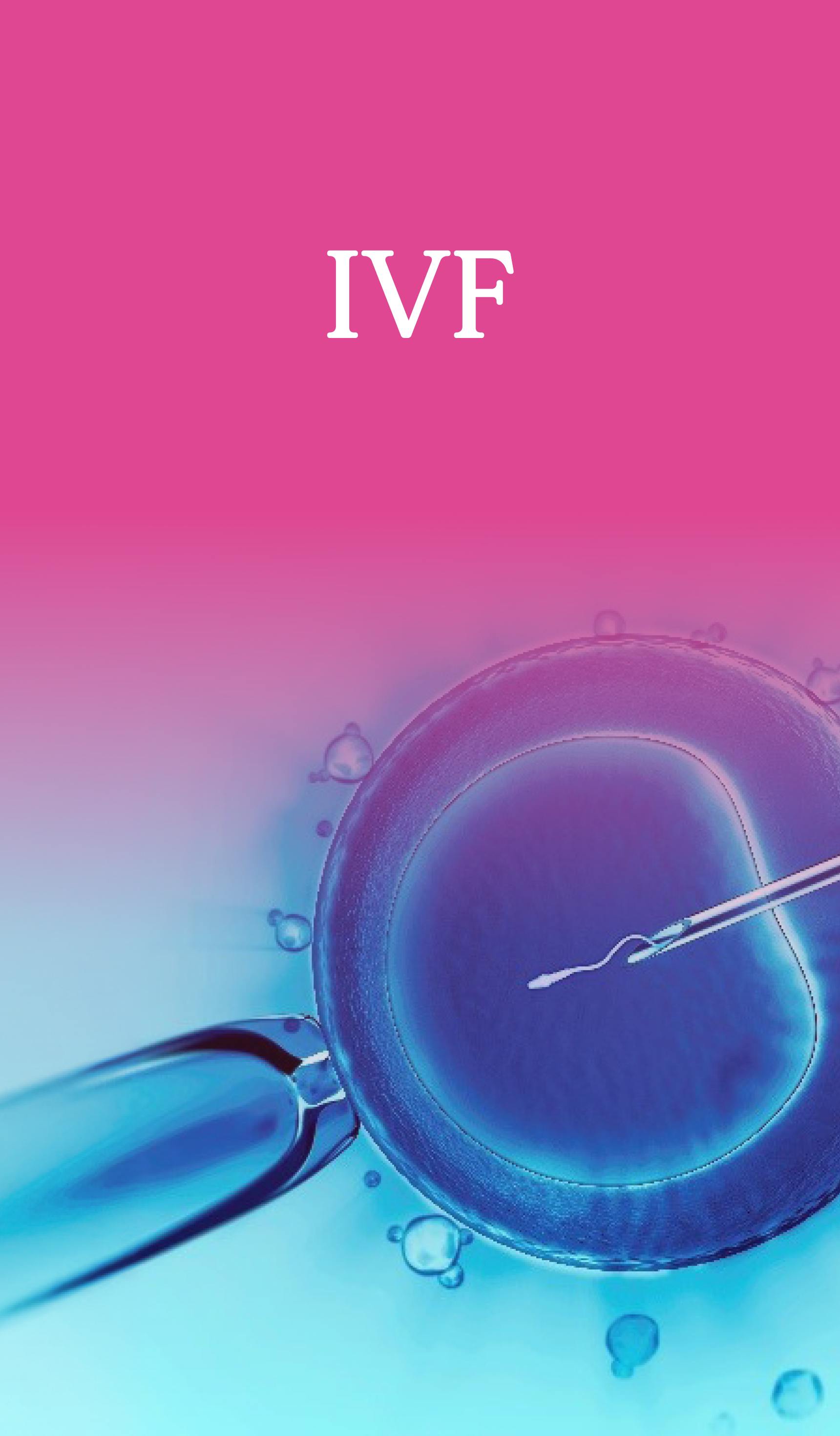
In vitro fertilization, commonly known as (IVF), a type of assistive reproductive technology (ART), is used to help infertility when other medical and surgical interventions failed to respond. During IVF, mature eggs from the woman’s ovaries are collected and fertilized by a man’s sperm in an incubator outside the woman’s body. The fertilized egg (embryo) is transferred back to the woman’s uterus. The entire cycle of IVF generally takes about three weeks.
The IVF procedure not necessarily involves fertilization between Your Eggs and Your Partner’s sperms. It is also possible to use sperms, eggs, or even embryos from anonymous donors.
The entire patient journey can be divided into the following stages
1. Pre-treatment Tests and Preparations
The success of IVF depends on many factors, such as age and underlying medical conditions. Various screening tests that may be required before IVF is
Ovarian reserve testing It determines the quality and quantity of woman’s eggs, Semen analysis.
Screening Tests for various infectious diseases including HIV.
Examination of the inside lining of the uterus, using Son hysterography or Hysteroscopy
2. IVF Procedure
The IVF is a 6 Step Procedure
Ovarian Stimulation
Normally a woman’s ovary develops one egg in a month. However, IVF requires multiple eggs to increase the success of fertilization. During IVF, several medications like medications for ovarian stimulation, medications for egg maturation, medications to prevent premature ovulation, and medications to prepare the uterine lining.
The entire process of ovarian stimulation takes one to two weeks. During this period several investigations like vaginal ultrasound and blood tests are performed to measure the response of ovarian stimulation therapy and appropriate time for egg retrieval
Egg retrieval
Egg retrieval is usually done by Transvaginal ultrasound aspiration During this procedure, the follicles are identified using an ultrasound probe that is inserted into the vagina. A needle is inserted through an ultrasound guide into the ovarian follicles to retrieve the eggs. Sometimes an abdominal ultrasound can be used if the ovaries can’t be accessed through transvaginal ultrasound. The entire process is of about 20 minutes in which multiple eggs can be retrieved.
Sperm retrieval
Partner’s or donor’s sperm can be collected from the Semen sample taken in the lab.
Fertilization
Fertilization of retrieved eggs with the sperms can be done by
Conventional insemination – It involves mixing and overnight incubation of healthy sperm and mature eggs
Intracytoplasmic sperm injection (ICSI) – (Injection of healthy sperm directly into the egg) It is used in case of inadequate sperm count
Embryo transfer
It is usually done 2 to 3 days after egg retrieval A long thin flexible tube (catheter) is inserted into the uterus through the vagina. One or more embryos are inserted into the uterus using a syringe, attached to the next end of the catheter.
Pregnancy happens when an embryo will implant in the lining of the uterus. It typically happens a week after egg retrieval
3. Post IVF procedure
Care of the Patient
The patient can have a routine after IVF avoiding vigorous activity.
What would you like to know
The success rate of IVF depends on various factors, including age, cause of infertility, and number of embryos transferred. A doctor can discuss your specific situation and potential success rates.
The number of cycles recommended will depend on individual circumstances and financial considerations. Doctors may advise discussing success rates after a certain number of cycles.
Preimplantation genetic testing (PGT) can help select healthy embryos, and vitrification improves the freezing and thawing of eggs and embryos.
Voices of Parenthood
Copyright by Yana IVF & Fertility Centre 2024. All rights reserved